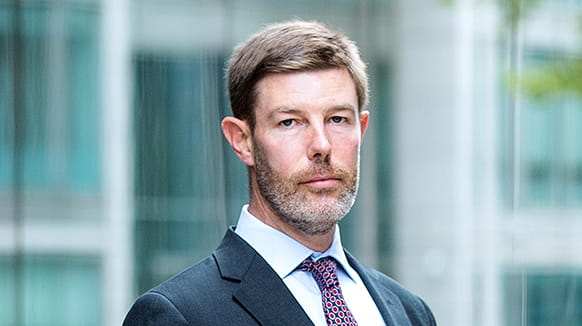Haynes Boone Partner Conrad Purcell and Associate Kayley Rousell authored an article for Datacentre Solutions exploring the opportunities and challenges of data centre development via project finance in sub-Saharan Africa.
Read an excerpt below.
Investment in the African data centre market is projected to reach $5 billion by 2026, reflecting a compound annual growth rate of approximately 15% during the 2021 – 2026 period . This expansion is driven by a number of factors including, growth in internet penetration and mobile data usage, population growth and urbanisation and demand for digital services such as artificial intelligence (“AI”) and cloud computing. From a project finance perspective, data centre development in sub-Saharan Africa presents a dynamic mix of opportunities and challenges, shaped by sustainability demands, infrastructure gaps and evolving policy landscapes. This article will explore the opportunities and challenges of data centre development via project finance in sub-Saharan Africa, in particular unpacking the typical structure used, potential regional challenges and the types of data centre projects evolving across the continent.
Project Finance Structures in Africa
For data centre developments in sub-Saharan Africa being financed by way of project finance, it is often the case that debt from commercial banks cannot be readily obtained, particularly in countries with limitations on liquidity in their banking markets or where there are considerable local political or market risks. To bridge this gap, financing in sub-Saharan Africa is often facilitated by multilateral or bilateral development banks known as development finance institutions (“DFIs”). DFIs are specialised finance institutions that provide long term financing to facilitate economic, environmental and social development and are integral to the success of projects across the continent of Africa. DFIs however are not banks and therefore do not have internal functions to provide certain services, and as such a project finance structure involving DFI lending will also require roles such as a facility agent, a security trustee or agent and an account bank to be fulfilled by other entities such as local or international banks. From a deal structure perspective a project financing for a data centre can largely be split into three core areas: (i) the finance documents (such as the main facility agreement or common terms agreement, security documents and intercreditor deed); (ii) project documents (such as leases, engineering, procurement and construction contracts (“EPC”) and operation and management contracts (“O&M”) and; (iii) a shareholders agreement (governing the equity side of the project). In sub-Saharan Africa in particular, the number and type of potential external risk factors (as discussed in more detail below) are specific to each African jurisdiction, but in order to mitigate such risks, this is often dealt with by a comprehensive package of representations and warranties included within the finance documents.
Navigating African Regional Realities
Due to its size, rapid population growth and government prioritisation of expansion of digital infrastructure, Africa offers strong potential for continued data centre development. However, there are a number of regional challenges which must be considered before commencing a data centre project on the continent.
African data centres face significant power usage effectiveness (“PUE”) challenges (PUE being how efficiently a data centre uses energy) primarily due to a warm climate and unstable national power grids. These grids frequently experience rolling blackouts meaning that reliance is placed on expensive, fossil-fuel dependent backup generators posing notable environmental challenges for projects of this kind. However, whilst such legacy power grid issues continue to exist, countries such as Ivory Coast and Senegal are actively investing in renewables such as wind and solar with a view to stabilising historic issues with power source reliability.
Other challenges for data centre development in Africa may include a shortage in availability of experienced contractors within the market and particularly those contractors who have the resources to underwrite the liabilities associated with contracting to build large scale data centre projects. In addition, developers may face civil unrest and other political challenges which can result in project delays and increased costs.
To read the full article from Datacentre Solutions, click here.

